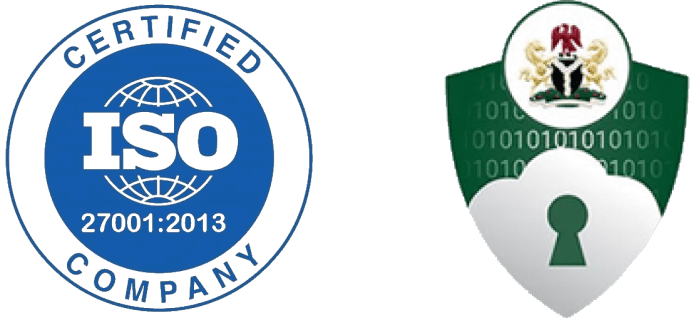Mr Oladele is the proud CEO of QuickShop, a fast-growing small business that audits the accounts of other small businesses. However, despite being a great auditor, he has a huge problem with tracking all his potential customers and taking the steps necessary to turn them into paying customers. He would regularly acquire a long list of referrals and leads to reach out to, but struggled to run a tight sales and customer outreach ship. Potential customers would often slip through the cracks, and he regularly had to sit with the nagging feeling that something was missing. Mr Oladele’s problem here, is not being able to track his calls effectively and determine how to acquire new customers easily.
Like Mr Oladele, the phone rings, but do you know who’s on the other end? As a business owner, you have no idea how much call tracking can show you hidden insights that can transform your sales and take your business to the next level.
What is call tracking?
Call tracking simply means measuring the impact of your business phone calls. It helps you understand:
- Who called you: Did they find your number on an ad, your website, or somewhere else?
- Why they called: Were they interested in your product, needed help, or had a question?
- What happened during the call: Did the call lead to a sale, appointment, or did they get frustrated and hang up?
The aim of call tracking is to help your sales and support teams efficiently reach out to different customers at each stage of their customer journey. It also helps sales teams stay organized, and allows them to keep sales records they can revisit in order to improve on their processes
You could say that your business is a car and call tracking is like the car dashboard (the blinking part that shows you the fuel gauge, speedometer, etc). Call tracking is not the biggest part but is definitely the single thing that will help you, the driver, understand the inner workings of your sales process and steer your business in the right direction. And like a faulty car, if it is broken or wrongly calibrated, it might mean that you will not always be able to drive at the speed you’d like.
Related post:
- Common Mistakes Nigerian Small Business Owners Make (And How to Avoid Them)
- How to Choose the Right Business Phone Number for Your Brand
What Does Call Tracking Entail?
As a business owner, you can approach call tracking in two different ways:
1. Identifying Potential Customers
As you plan to attract and convert new customers, there will be at least 4 parts they can be grouped into:
- Leads: These are people that have shown interest in your product or service and have the potential to become customers. They may come as referrals from friends and existing customers; individuals that have signed up on your website; or even potential customers that have requested a demo of your product and services.
- Scheduled Calls: These are leads in the consideration phase that have taken action by scheduling a one-on-one call with someone on your sales team. This class of leads needs some extra information to convert into paying customers.
- Follow-up: These people are leads that have not yet been converted. They are very important in the sales process as a simple follow up could nudge them to actually become paying customers. A study conducted by Invesp showed that 80% of sales typically require an average of 5 follow-up calls after the initial meeting.
- Enrollment: These are leads that have made a decision to become a customer and are in the process of payment.
All these individuals have different needs depending on the stage they’re at, and will need to be reached out to by a salesperson that understands the best way to convert them. As a matter of fact, Smarter HQ insists that 72% of shoppers act on marketing messages only when they are customized to their interests. In an ideal situation, each list of potential leads is assigned to a different sales person with a specific sales script aimed at getting them to make a purchase.
2. Call Recording and Analytics
Most companies that use our call analytics feature do not only organize leads, but also go as far as recording inbound and outbound calls so they can analyze them later. This is an incredible way of finding out what is working and what isn’t. PressOne’s call analytics helps you analyze sales calls; how your staff interact with your customers and your customer’s tone in response (annoyed, bored, disinterested). This helps you understand how best to coach your team to interact with your customers.
Also, your competitors are already using PressOne to get ahead and understand how to satisfy their customers more and sell easily to them.
Get a Free demo from us
Related post:
How can call tracking help you sell more to your customers?
1. Pinpoint what is wrong with your sales scripts
The most experienced marketers will tell you that getting it right the first time is not the norm. However, with call tracking, you can nail your sales scripts faster. You can detect the exact inflection point; the point where you notice the customer getting cold feet, or the most common objection customers raise during calls, and adjust your sales scripts to accommodate for that.
2. Identify weak-points
According to Salesforce, 55% of sales agents say they need better training to do their jobs well. With call tracking, you can identify weak-points and offer support to struggling members of your sales team. PressOne provides access to call tracking resources like recordings and analytics to help you pinpoint problems and how to solve them.
Related posts:
- The Benefits of a Virtual Company Phone Number for Small Businesses and Startups
- How to get a Company Phone Number, a step-by-step guide for an African Phone Number
3. Never suffer when a star salesperson leaves the team
Stories of companies struggling to cope after a star salesperson leaves the team are far too common. However, with a proper call tracking strategy and efficient tools, record-keeping is automated and it becomes stunningly easy to pick up wherever the person left off and improve sales efforts using their methods.
4. Identify and reward high-performing personnel
Interactive dashboards using a tool like Press One makes it stunningly easy to identify and reward high performers within your sales team without fear of favor or bias.
Related post: Top Tips for Registering a Company Phone Number in Nigeria
5. Effective call tracking can considerably reduce your cost per acquisition
When you stop bleeding leads due to a faulty sales process, you considerably increase conversion rates and lower your cost per acquisition. You notice increased juice for every squeeze, and marketing efforts become way more efficient and twice as satisfactory.
6. Support your customers after they have made a purchase
With call tracking, you can figure out the most common points of friction new customers have, and help your support teams do a better job of ensuring that these points of friction are smoothed out.
Creating an effective call tracking strategy is vital for businesses and organizations who want to succeed in this economy. By understanding the importance of call tracking , knowing what tools to use for effective call tracking and recognizing the different groups of customers that can be tracked, you can create sales scripts and acquisition processes that attract, engage, and retain your customers.
Remember, the key to success lies in continuous improvement and adapting to the ever-changing digital landscape.
Get ahead with Press One today.
Related post:
- Choosing a Flexible Virtual Phone Number for Your Growing Nigerian Business
- How a Professional Business Phone Number Helps







